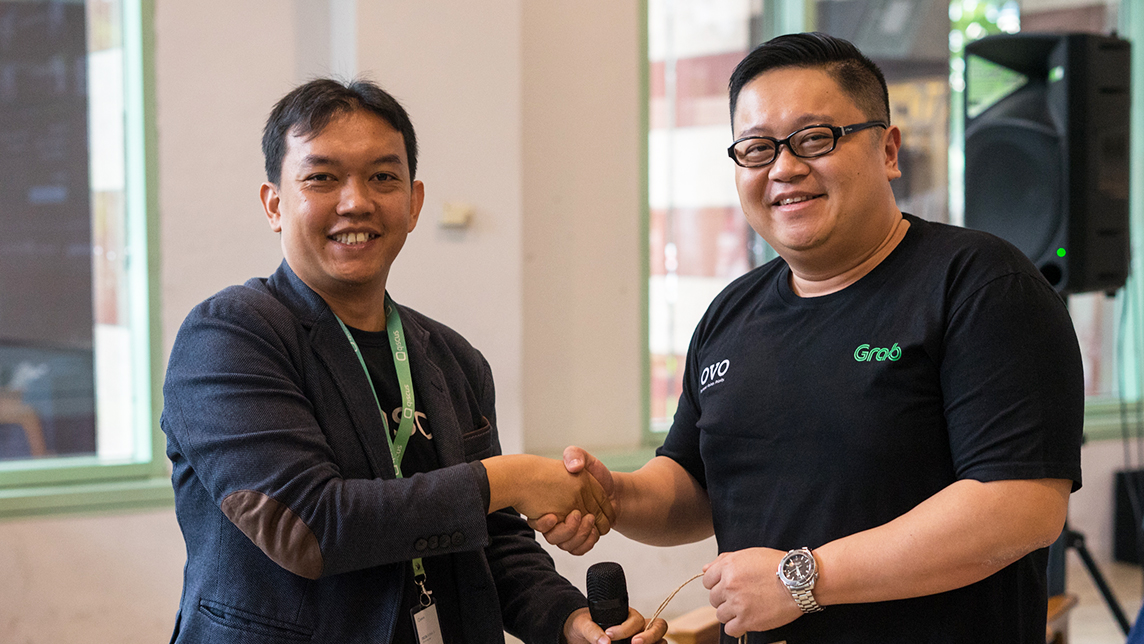Indonesian startup Qiscus, which creates chat SDK (software development kits) for corporate clients, including other startups, is in the midst of raising Series A financing. According to Muhammad MD Rahim, COO and co-founder of Qiscus, the deal is expected to close by year-end as the company seeks to accelerate its growth in Southeast Asia.
Besides big-name clients like Bukalapak, Qlue, telco Indosat Ooredoo and automotive importer Astra, Qiscus also serves smaller companies. They subscribe to its SaaS packages, in a market spanning 12 countries and 13 industries. Most of Qiscus's revenue comes from enterprise clients, Muhammad said, but declined to provide figures or comment on profitability.
The company wants to deepen its penetration of the Southeast Asian market. For that, getting a VC investor with an international network on board is crucial, Muhammad said.
“In the past, we raised money from strategic investors, not so much from VCs," he told CompassList. "This has changed for our upcoming Series A round.” He added that corporate investors usually lack the regional connections that would help Qiscus reach out to new clients overseas.
He declined to comment further, though confirmed that Qiscus raised pre-A funding from Singapore-based VC Rekanext, which Muhammad said is one of the company’s minority investors.
Difficult start
Qiscus was founded in 2013, developing tailor-made internal messaging applications for enterprise clients, similar to Slack. Entering the Indonesian market proved tough for them, however, since internal communications was still “email-centric” at the time. “Back then, the law only recognised email as legal evidence,” Muhammad recalled.
The company's founding team comprises graduates from Singapore's Nanyang Technological University: Muhammad, the COO; Delta Purna Widyangga, CEO; Evan Purnama, CTO; and Amin Nordin, who left the company in 2015. The product, an internal chat system for companies, was developed from a feature in the team’s previous project, Phi Decks, an e-learning platform they built for a competition.
Despite their initial difficulty in breaking into the Indonesian market, during this period Qiscus gained a reputation as experts in real-time communication, Muhammad said. The company was eventually approached by wedding services platform Bridestory to implement a customer service chat functionality to its app. Later, Qiscus won business from Halodoc to develop the telemedicine startup’s app from the ground-up.
The experience helped the team spot a market gap in in-app chat functionality in Indonesia. At the time, few companies could talk directly to customers through popular chat apps like WhatsApp, Facebook Messenger and BlackBerry Messenger (which shut down recently), despite the apps’ popularity. “It was an obvious blue ocean for us,” Muhammad said.
Versatile stool
Since pivoting in early 2017, Qiscus continues to develop products to fit various use cases. Harkening back to their roots as internal messaging developers, Qiscus created QlueWork for smart city builders Qlue, an application that integrates Qlue’s monitoring and dashboard capabilities with real-time conversation functionalities. The app debuted at the 2018 Asian Games, where organizers and security staff coordinated activities and shared information through the QlueWork platform.
Using the chat SDK as a basis, Qiscus created a multi-channel customer service platform to bring their clients to where the customers already are. SMEs and enterprise clients alike can manage customer interactions across different chat apps within one dashboard. Qiscus also works with chatbot builder Kata.ai, allowing users to integrate chatbots and automate handling routine questions.
Muhammad is proud of the Qiscus chat SDK’s versatility. According to him, there are at least 12 separate use cases for their product so far, from internal communications to telemedicine. The latter is the core concept of Halodoc, where patients can directly consult with doctors without having to go to a clinic.
“Such chat-based services have disrupted traditional industries, which used to be dependent on physical meetups.
“People are so used to consuming bite-sized info and socializing with friends and family via chat. If businesses want to engage their customers and remain relevant, they'd have no choice but to leverage this habit,” Muhammad said.
















